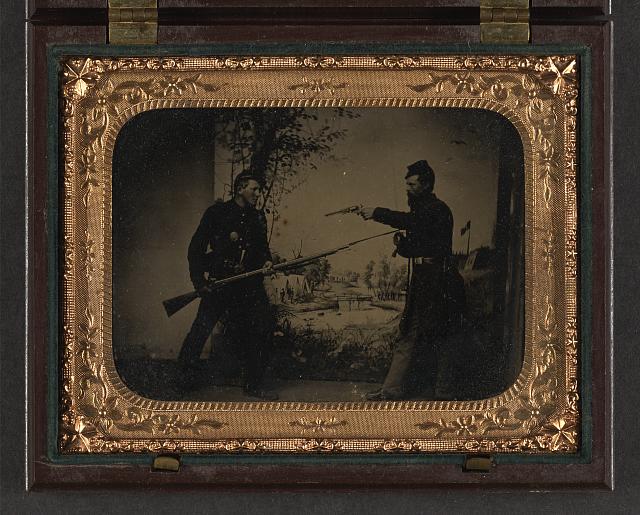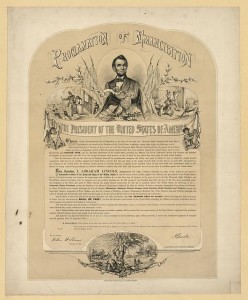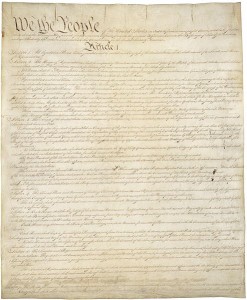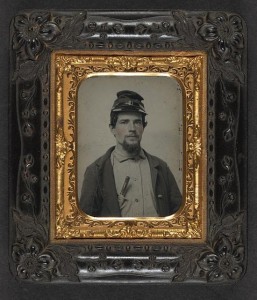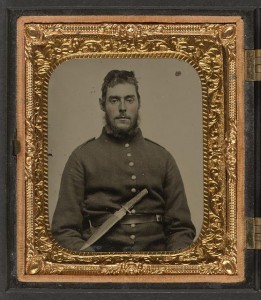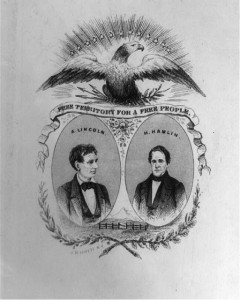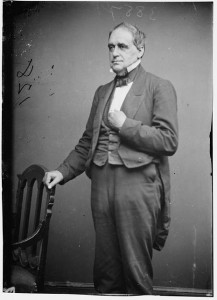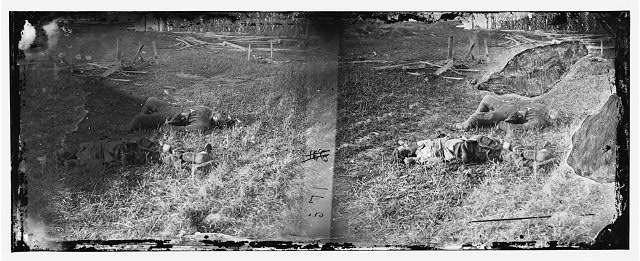The Army of Northern Virginia is in dire need of clothing, shoes, and blankets. By this time the North discouraged goods sent to soldiers as at best ineffectual and a logistics problem. Here a Richmond paper urges the entire Southern populace (even soulless speculators) to send whatever supplies they can.
From the Richmond Daily Dispatch October 9, 1862:
Clothing for the army.
The Savannah Republican publishes an energetic appeal from an army correspondent dated at Winchester to the people of the Confederate States–men, women, and even speculators, who being presumed to have no souls, are, of course, not to be considered as either men or women — to exert themselves to the utmost extent of their ability in procuring clothing for our army. Whatever can be done, he says, must be done at once. “Not one moment can be lost that will not be marked, as by the second-hand of a watch, with the pangs of a sufferer. Already the hills and valleys in these high latitudes have been visited by frost, and the nights are uncomfortably cool to the man who sleeps on the ground. Come up, then, men and women of the South, to this sacred duty. Let nothing stand between you and the performance of it. Neither pride nor pleasure, nor personal case and comfort, should withhold your hands from this holy work. The supply of wool and leather we know is limited, but do what you can, and all you can, and as soon as you can. If you cannot send woolen socks, send half woolen or cotton socks, and so with under-clothing, coats, and pants If blankets are not to be had, then substitute comforts made of oznaburg stuffed with cotton. Anything that will keep off the cold will be acceptable. Even the speculator and extortioner might forego their gains for a season and join in this religious duty. If they neither clothe the naked, nor feed the hungry, who are fighting for their freedom, and for their homes and property, what right have they to expect anything but eternal damnation, both from God and man?
“If the army of Virginia could march through the South just as it is — ragged, and almost barefooted and hatless, many of them limping along, and not quite well of their wounds or sickness yet cheerful and unwilling to abandon their places in the racks, their clothes riddled with bullets, and their banners covered with the smoke and dust of battle, and shot into latters, many of them in scribed with Williamsburg, ‘Seven Pines.’ ‘Galses’s Mill,’ ‘Garnett’s Farm,’ ‘Front Royal,’ ‘McDowell,’ ‘Cedar Run,’ and other glorious fields — if this army of veterans, thus shed and lead, with tattered and forms and banners, could march from Richmond to the Mississippi, it would produce a sensation that has no parallel in history since Peter the Hermit led his swelling hosts across Europe to the rescue of the Holy Sepulchre. ” …
We are no alarmists; we are aware that Congress has taken measures since the letter from which the above extracts are made was written. But this is a subject of such vast importance that it must be taken into consideration by everybody. That army — that glorious army — must be clad and must be shod. Upon it depends the glory alike, and salvation of our country. Posterity will scarcely believe that the wonderful campaign which has just ended, with its terrible marches and desperate battles, was made by men, one-fourth of whom were entirely barefooted, and one-half of whom were as ragged as scarecrows. Yet, who ever heard of such valor, such constancy, such devotion, such an entire absence of all complaints. We cease to wonder at the number of stragglers when we hear how many among them were shoeless, with stone bruises on their feet.
Men and women of the South, to the Rosene, to the rezone! [rescue?]

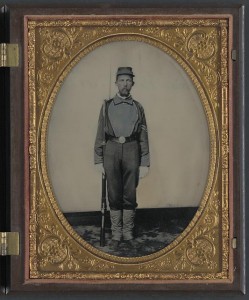
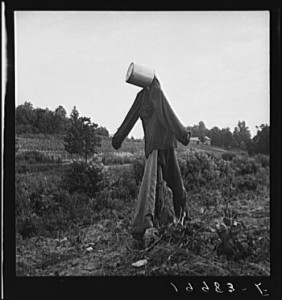
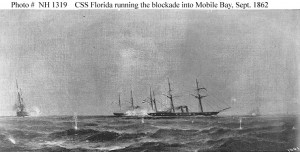
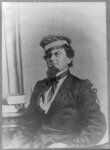
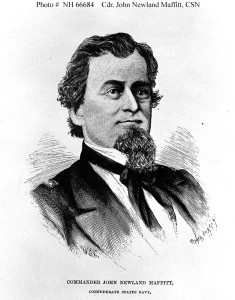
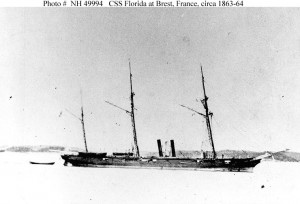
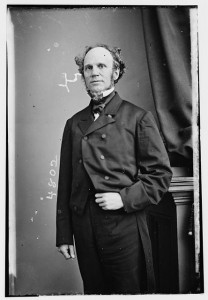
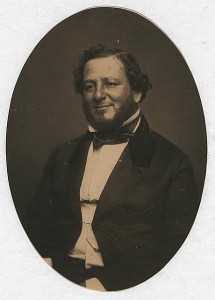
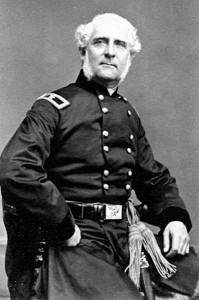
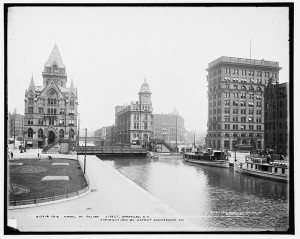
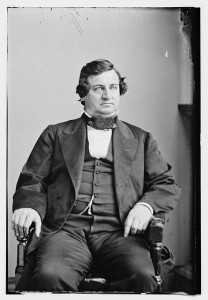
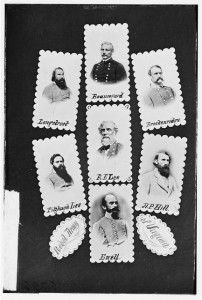
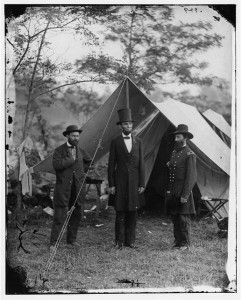
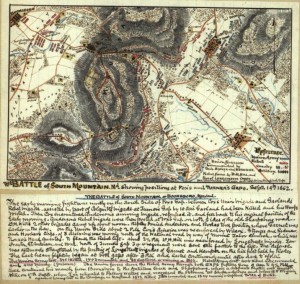
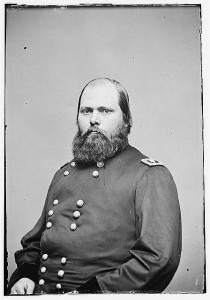
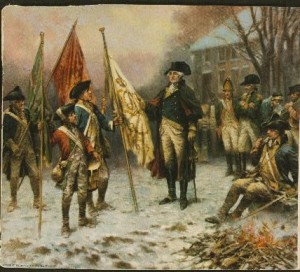
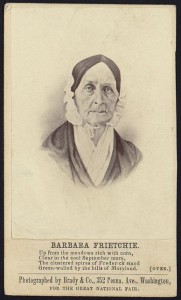
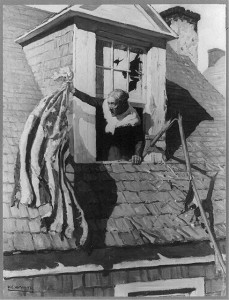
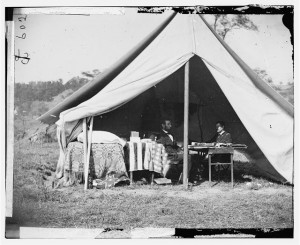
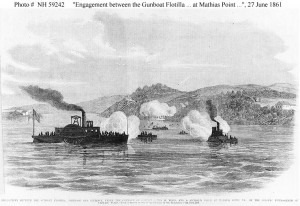
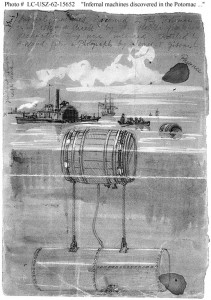
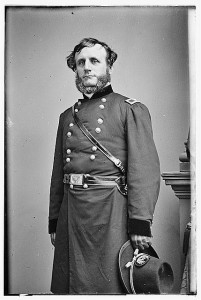
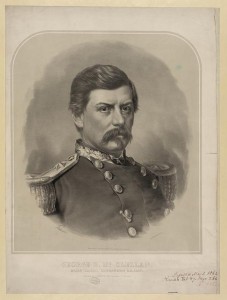
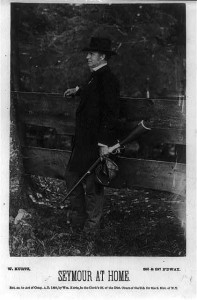
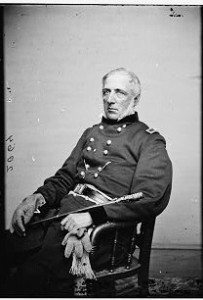
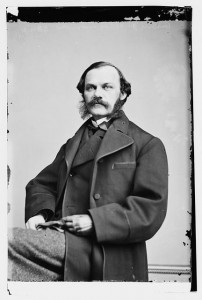
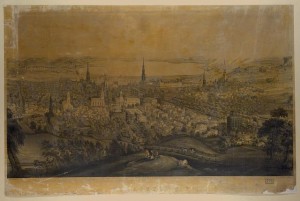
![Breaking that "backbone" (Pub'd. by Currier & Ives, Nassau St., N.Y. [1862 or 1863]; LOC: LC-USZ62-42560) Breaking that "backbone" (Pub'd. by Currier & Ives, Nassau St., N.Y. [1862 or 1863]; LOC: LC-USZ62-42560)](https://www.bluegrayreview.com/wp-content/uploads/2012/10/3a42878r.jpg)
